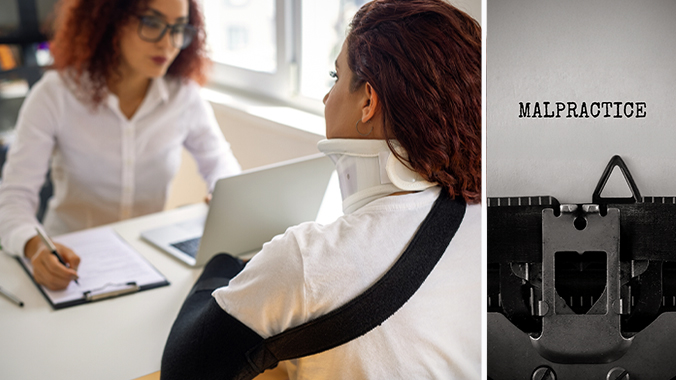Opioids and the Law: What Every Attorney Needs to Know About the Opioid Crisis, Liability, Compliance, and the Evolving Standard of Care

Christine L. Stanley is a partner at Sturgill, Turner, Barker and Maloney. She focuses on the areas of medical malpractice defense, regulatory and corporate compliance, fraud and abuse, and state regulatory matters. She is distinguished as one of the top-rated health care attorneys in the nation, selected to Kentucky and Ohio Rising Stars by Thomson’s Reuters Super Lawyers®.

Dr. Andrew Kolodny is the Medical Director of the Opioid Policy Research Collaborative at the Heller School for Social Policy and Management at Brandeis University. He is also President of Physicians for Responsible Opioid Prescribing (PROP), a national organization advocating for evidence-based, cautious prescribing to prevent opioid addiction and overdose.
2 hour CLE
Get this course, plus over 1,000+ live webinars.
Learn More
Program Summary
This panel explores the intersection of medicine, law, and public policy in addressing the North American opioid crisis. Speakers will trace the origins and evolution of the epidemic from prescription painkillers to fentanyl and examine how legal, medical, and ethical frameworks have shaped both the problem and its potential solutions.
The discussion will highlight the role of healthcare providers, regulators, and the legal community in preventing opioid misuse, managing civil and criminal liability, and ensuring access to effective treatment for individuals with opioid use disorder.
Key topics to be discussed:
- The evolution and scope of the opioid crisis
- Medical prescribing and pain management
- Navigating the legal and regulatory landscape
- Civil and criminal liability in opioid-related cases
- Ethical and professional responsibility considerations
- Justice system challenges and treatment access
- Evidence-based strategies for moving forward
This course is co-sponsored with myLawCLE.
Date / Time: November 13, 2025
- 1:00 pm – 3:10 pm Eastern
- 12:00 pm – 2:10 pm Central
- 11:00 am – 1:10 pm Mountain
- 10:00 am – 12:10 pm Pacific
![]() Closed-captioning available
Closed-captioning available
Speakers
 Christine L. Stanley | Sturgill, Turner, Barker & Moloney, PLLC
Christine L. Stanley | Sturgill, Turner, Barker & Moloney, PLLC
Christine L. Stanley is a partner at Sturgill, Turner, Barker and Maloney. She focuses on the areas of medical malpractice defense, regulatory and corporate compliance, fraud and abuse, and state regulatory matters.
She is distinguished as one of the top-rated health care attorneys in the nation, selected to Kentucky and Ohio Rising Stars by Thomson’s Reuters Super Lawyers®. She is listed as one of the Best Lawyers: Ones to Watch in Health Care Law and Medical Malpractice Law. In 2021, she was named “Outstanding Young Lawyer” by the Kentucky Bar Association’s Young Lawyers Division, in recognition of exceptional and dedicated civic service, community involvement, and legal accomplishment and received the 2020 Outstanding Young Lawyer Award from the Fayette County Bar Association.
Ms. Stanley received her Juris Doctor from the University of Kentucky College of Law in May 2012 and Bachelor of Science in Technical Writing for Science and Medicine from Carnegie Mellon University, Pittsburgh, Pennsylvania in May 2008. She is licensed to practice law in the Commonwealth of Kentucky and is admitted in the U.S. District Court for the Eastern and Western Districts of Kentucky, the U.S. Court of Appeals for the Sixth Circuit, and the United States Supreme Court.
Ms. Stanley is an adjunct professor for the University of Kentucky and University of Cincinnati as well as lecturer and presenter of seminars on topics of emerging issues in health care regulation, compliance programs, HIPAA, and electronic medical records; attended by healthcare attorneys, claims professionals and risk managers, CEOs, administrators, and all employees within a hospital or long-term care setting.
 Andrew Kolodny | Brandeis University
Andrew Kolodny | Brandeis University
Dr. Andrew Kolodny is the Medical Director of the Opioid Policy Research Collaborative at the Heller School for Social Policy and Management at Brandeis University. He is also President of Physicians for Responsible Opioid Prescribing (PROP), a national organization advocating for evidence-based, cautious prescribing to prevent opioid addiction and overdose. Widely recognized as one of the nation’s foremost experts on the opioid crisis. His clinical work is focused on the treatment of opioid use disorder.
Dr. Kolodny has advised multiple committees of the United States Senate and House of Representatives, the U.S. Department of Justice, and numerous state Attorneys General in investigations of opioid manufacturers and allied pain organizations. He has testified as an expert witness before Congress and in litigation brought against the opioid industry. He also served as medical advisor for the critically acclaimed Hulu series Dopesick, which dramatized the origins of the opioid crisis.
Earlier in his career, Dr. Kolodny served as Chief Medical Officer for Phoenix House, a leading national nonprofit addiction treatment provider, and as Chair of Psychiatry at Maimonides Medical Center in New York City. His public health work began at the New York City Department of Health and Mental Hygiene, where he developed and implemented life-saving initiatives, including the city’s first large-scale buprenorphine program, naloxone overdose prevention efforts, and emergency room-based SBIRT (Screening, Brief Intervention, and Referral to Treatment) programs for substance misuse.
Agenda
I. The evolution and scope of the opioid crisis | 1:00pm – 1:15pm
- Trends in prescription opioid, heroin, and fentanyl mortality across North America
- The relationship between medical prescribing, illicit supply chains, and addiction trajectories
- The pharmaceutical industry’s role in the epidemic and ongoing accountability measures
II. Medical prescribing and pain management | 1:15pm – 1:30pm
- The limited, evidence-based role of opioid analgesics in acute and chronic pain
- Current medical guidelines and their alignment with legal standards of care
- How changes in prescribing practices have impacted patients and public health outcomes
III. Navigating the legal and regulatory landscape | 1:30pm – 1:45pm
- Key federal and state statutes, including the Controlled Substances Act and DEA regulations
- Enforcement trends, post-crisis litigation developments, and heightened scrutiny of prescribers and institutions
- How policy reforms are reshaping compliance expectations and risk management strategies
IV. Civil and criminal liability in opioid-related cases | 1:45pm – 2:00pm
- Common civil claims (medical malpractice, negligent supervision, failure to monitor)
- Defense strategies: Documentation, expert testimony, and distinguishing legitimate medical practice from misconduct
- The evolving standards for causation, foreseeability, and institutional responsibility
Break | 2:00pm – 2:10pm
V. Ethical and professional responsibility considerations | 2:10pm – 2:30pm
- How attorneys advising healthcare and corporate clients can balance compliance, ethics, and patient welfare
- The role of lawyers in advising on internal investigations, audits, and public relations in opioid-related matters
- Broader ethical questions around access to care, stigma, and representing clients with substance use disorders
VI. Justice system challenges and treatment access | 2:30pm – 2:50pm
- Legal and ethical concerns surrounding incarcerated individuals with opioid addiction
- Constitutional and human rights implications of withdrawal management and denial of Medication-Assisted Treatment (MAT)
- Emerging case law and best practices for ensuring humane and lawful treatment in correctional settings
VII. Evidence-based strategies for moving forward | 2:50pm – 3:10pm
- Prevention and early intervention models proven to reduce new cases of opioid addiction
- Expanding access to effective, evidence-based treatment for opioid use disorder
- Collaboration between legal, medical, and policy professionals to address systemic gaps and promote long-term recovery
More CLE Webinars
Trending CLE Webinars










Upcoming CLE Webinars





























































